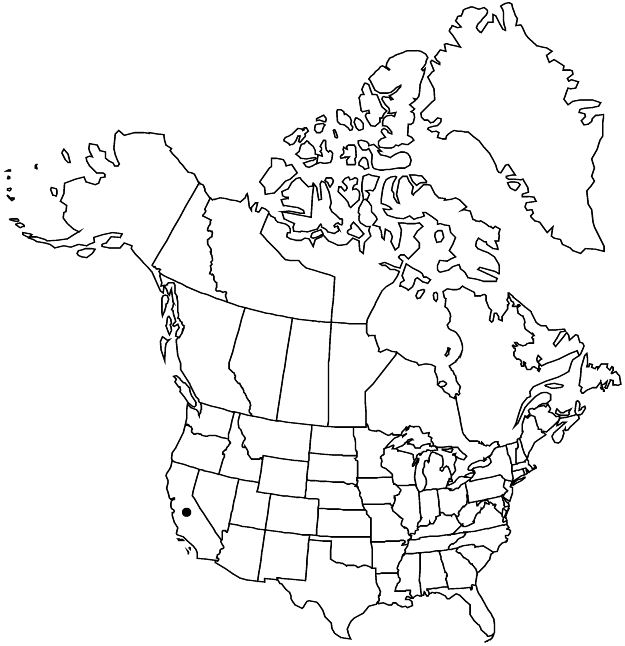Difference between revisions of "Sidalcea malviflora subsp. laciniata"
Perenn. Sp. Sidalcea, 29. 1957.
FNA>Volume Importer |
FNA>Volume Importer |
||
| Line 16: | Line 16: | ||
|name=Sidalcea malviflora var. sancta | |name=Sidalcea malviflora var. sancta | ||
|authority=C. L. Hitchcock | |authority=C. L. Hitchcock | ||
| + | |rank=variety | ||
}} {{Treatment/ID/Synonym | }} {{Treatment/ID/Synonym | ||
|name=S. scabra | |name=S. scabra | ||
| − | |authority= | + | |authority= |
| + | |rank=species | ||
}} | }} | ||
|hierarchy=Malvaceae;Malvaceae subfam. Malvoideae;Sidalcea;Sidalcea malviflora;Sidalcea malviflora subsp. laciniata | |hierarchy=Malvaceae;Malvaceae subfam. Malvoideae;Sidalcea;Sidalcea malviflora;Sidalcea malviflora subsp. laciniata | ||
| Line 35: | Line 37: | ||
|distribution=Calif. | |distribution=Calif. | ||
|discussion=<p>Subspecies laciniata is the most commonly found component of <i>Sidalcea malviflora</i>. It can be distinguished from most of the other subspecies by its deeply incised</p><!-- | |discussion=<p>Subspecies laciniata is the most commonly found component of <i>Sidalcea malviflora</i>. It can be distinguished from most of the other subspecies by its deeply incised</p><!-- | ||
| − | --><p>leaves with deeply incised lobes. This difference appears to be the only one between it and < | + | --><p>leaves with deeply incised lobes. This difference appears to be the only one between it and <i></i>subsp.<i> malviflora</i>, and they intergrade. In the southern part of its range, <i></i>subsp.<i> laciniata</i> appears to intergrade with <i></i>subsp.<i> californica</i> and with <i>S. sparsifolia</i>. C. L. Hitchcock (1957) distinguished the southern plants as var. sancta, with 2n = 20, stating that both varieties pass imperceptibly into one another. Plants in Monterey and San Luis Obispo counties are difficult to determine. Subspecies laciniata is found in the southern North Coast Ranges and central western California, from Lake to San Luis Obispo counties; it is most common in the San Francisco Bay area on foothills.</p> |
|tables= | |tables= | ||
|references= | |references= | ||
| Line 44: | Line 46: | ||
-->{{#Taxon: | -->{{#Taxon: | ||
name=Sidalcea malviflora subsp. laciniata | name=Sidalcea malviflora subsp. laciniata | ||
| − | |||
|authority=C. L. Hitchcock | |authority=C. L. Hitchcock | ||
|rank=subspecies | |rank=subspecies | ||
| Line 59: | Line 60: | ||
|publication year=1957 | |publication year=1957 | ||
|special status=Endemic | |special status=Endemic | ||
| − | |source xml=https://jpend@bitbucket.org/aafc-mbb/fna-data-curation.git/src/ | + | |source xml=https://jpend@bitbucket.org/aafc-mbb/fna-data-curation.git/src/f50eec43f223ca0e34566be0b046453a0960e173/coarse_grained_fna_xml/V6/V6_621.xml |
|subfamily=Malvaceae subfam. Malvoideae | |subfamily=Malvaceae subfam. Malvoideae | ||
|genus=Sidalcea | |genus=Sidalcea | ||
Revision as of 23:06, 16 December 2019
Plants 0.2–0.8(–1.1) m, with fibrous-woody taproot and often short rootstocks or compact rhizomes. Stems erect to ascending, base decumbent, often rooting, short-hirsute and/or stellate-hairy or glabrous proximally, usually more sparsely, softly stellate-hairy distally. Leaves basal and cauline, proximal clustered, distal well-spaced; stipules ovate to lanceolate, 5–12 × 1.5–3(–5) mm; petioles of basal leaves 15–20(–25) cm, proximalmost often 8–9 times as long as blade, much reduced distally to 1/2 times as long as blade; blade 2–7 cm wide, surfaces usually sparsely stellate-hairy or hirsute, more densely so abaxially; basal rounded to reniform, usually shallowly 7-lobed, margins crenate, distal reniform, deeply, ternately lobed and dissected, lobes wide-linear, 1–2 mm wide, total segments usually 13+. Inflorescences dense, becoming open and elongate, usually unbranched, often 20+-flowered, 15+ cm in age, proximal flowers and fruits spaced 1+ cm apart; proximal bracts leaflike, dissected to base, shorter than pedicels, distal bracts linear to ovate, undivided or 2-fid, (2–)4–5 mm, longer than pedicels. Pedicels 5–15(–30) mm on proximalmost flowers, distal pedicels 2–5 mm. Flowers: calyx 7–11 mm, sparsely stellate-puberulent and bristly, marginal and vein hairs longest; petals usually light pink to dark rose, rarely white, usually conspicuously pale-veined especially when dried, pistillate darker, 9–15 mm, bisexual (12–)15–25 mm; staminal column 6–7 mm; anthers white to pale yellow; stigmas (6 or)7 or 8(or -9). Schizocarps 5–7 mm diam.; mericarps (6 or)7 or 8(or 9), 2.5–3.5 mm, glandular-puberulent, usually prominently reticulate-veined-pitted, mucro 0.5 mm. Seeds 2–3 mm. 2n = 20, 40.
Phenology: Flowering (Feb–)Mar–Jun.
Habitat: Grasslands, open foothill woodlands, sometimes serpentine
Elevation: 0–700 m
Discussion
Subspecies laciniata is the most commonly found component of Sidalcea malviflora. It can be distinguished from most of the other subspecies by its deeply incised
leaves with deeply incised lobes. This difference appears to be the only one between it and subsp. malviflora, and they intergrade. In the southern part of its range, subsp. laciniata appears to intergrade with subsp. californica and with S. sparsifolia. C. L. Hitchcock (1957) distinguished the southern plants as var. sancta, with 2n = 20, stating that both varieties pass imperceptibly into one another. Plants in Monterey and San Luis Obispo counties are difficult to determine. Subspecies laciniata is found in the southern North Coast Ranges and central western California, from Lake to San Luis Obispo counties; it is most common in the San Francisco Bay area on foothills.
Selected References
None.
